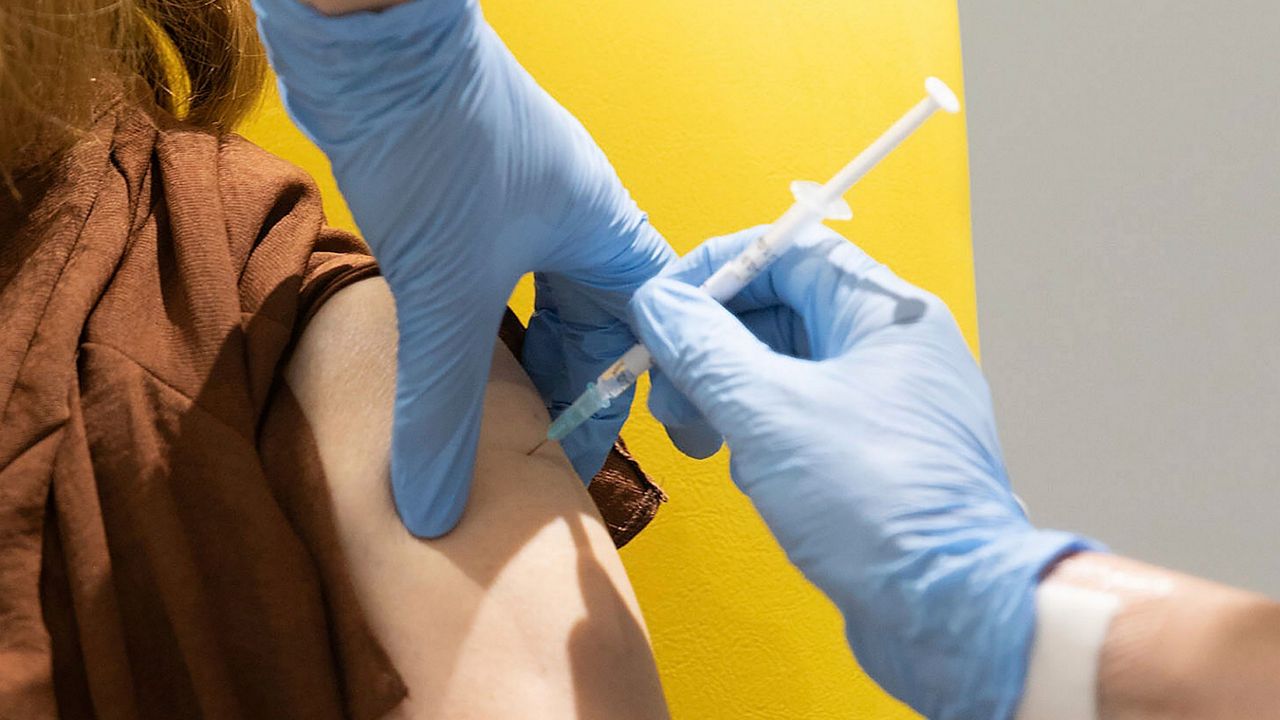The National Guard is mobilizing to help distribute the coronavirus vaccine in North Carolina, Gov. Roy Cooper said Tuesday.
The governor mobilized the National Guard as the state begins to move into vaccinating more groups of people in the phased roll-out of the vaccine.
Many counties are entering the first group in Phase 1b, starting to vaccinate people over 75. Several counties have reported phonelines and websites being overwhelmed by people trying to sign up to get the vaccine.
Almost 110,000 people in North Carolina have been vaccinated so far, according to the state Department of Health and Human Services. Almost all of the people vaccinated in the state so far have been frontline health care workers dealing directly with COVID-19 patients.
Cooper did not say exactly what role the National Guard troops will have in distributing the vaccine, but many hospitals have had to bring on more staff to help give the vaccine.
This is the biggest vaccination campaign in United States history.
North Carolina is lagging behind most other states in its vaccination rate so far, according to data from the Centers for Disease Control and Prevention.
"Ensuring COVID-19 vaccines are administered quickly is our top priority right now. We will use all resources and personnel needed. I’ve mobilized the NC National Guard to provide support to local health providers as we continue to increase the pace of vaccinations," the governor said in a tweet Tuesday.
North Carolina is still in Phase 1a of the plan but counties are starting to move to Phase 1b Wednesday.
Here’s the plan from DHHS:
Phase 1a: Health care workers fighting COVID-19 and longterm care staff and residents.
Hospitals and local health departments are vaccinating health care workers caring for and working directly with patients with COVID-19 and those giving vaccines. In addition, the federal government is vaccinating longterm care residents and staff.
Phase 1b: Adults 75 years or older and frontline essential workers.
This phase of vaccinations will open in groups, which officials say should begin in early January.
- Group 1: Anyone 75 years or older regardless of medical condition or living situation. People do not have to have a chronic health condition.
- Group 2: Health care and frontline essential workers who are 50 years of age or older.
- Group 3: Frontline workers of any age and health care workers of any age, regardless of whether they work directly with COVID-19 patients.
The CDC defines frontline essential workers as first responders (firefighters, police), education (child care, teachers, support staff), manufacturing, corrections officers, public transit, grocery store, food and agriculture, and US postal workers.
Phase 2: Adults at high risk for exposure and at increased risk of severe illness.
In this phase, vaccinations will also open in groups.
- Group 1: Anyone ages 65-74 years regardless of medical condition or living situation.
- Group 2: Anyone 16-64 years with a medical condition that increases risk of severe disease from COVID-19.
- Group 3: Anyone who is incarcerated or living in other close group living settings who has not already vaccinated due to age, medical condition or job function.
- Group 4: Essential workers as defined by the CDC who have not yet been vaccinated.
Phase 3: Students. College, university and high school students 16 or older.
Younger children will only be vaccinated when the vaccine is approved for them.
Phase 4: Finally, anyone who wants a COVID-19 vaccine will be able to get one.



